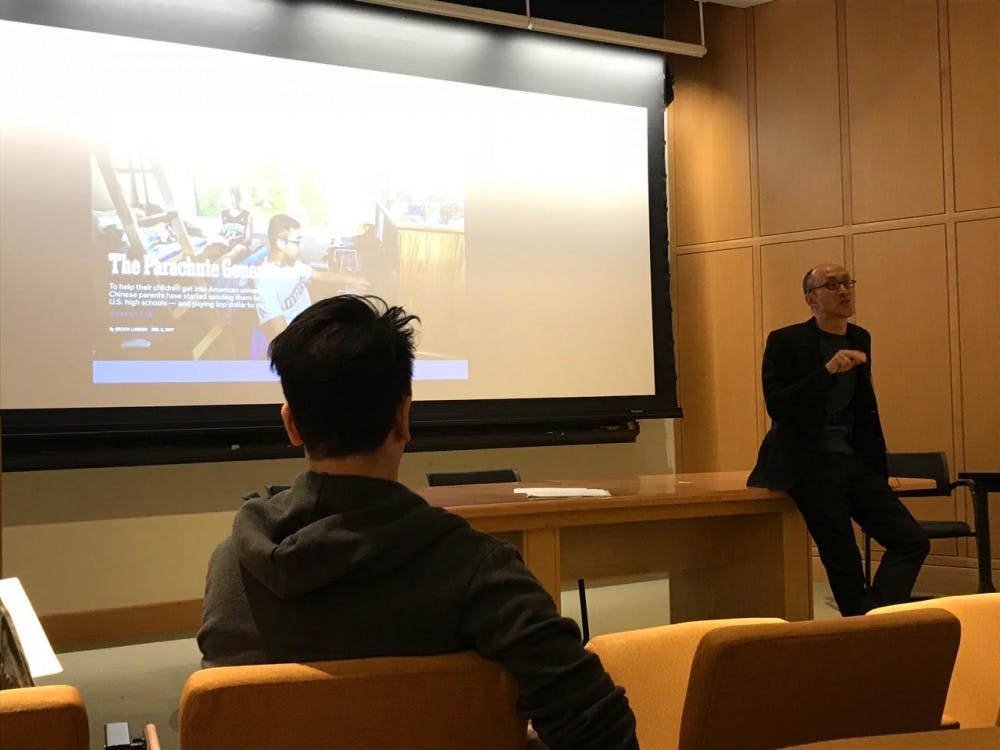On Sept. 27, University of Pennsylvania professor David L. Eng spoke about internally repressed and psychologically damaging racial and sexual discrimination within Asian-American communities.
Eng is a professor of English and graduate chair of the Department of English at Penn.
In the upcoming months, Eng will release his book, “Racial Melancholia, Racial Dissociation: On the Social and Psychic Lives of Asian Americans,” which he co-authored with Dr. Shinhee Han, a psychotherapist at The New School. In the lecture, Eng highlighted key takeaways from the book.
Themes of his book include the phenomenon of “racial melancholia” — an estrangement from American culture surrounding racial norms — as it relates to depression and suicide among model minorities. Still, in the years after his early work on racial melancholia, Eng started to notice different behaviors in the students of his Asian-American literature and culture classes.
“More and more [of the students] started to come out, not as gay or lesbian, but as transnational adoptees,” Eng said. “But, the language that they used was language that was borrowed from queer studies.”
Eng explained that the world has transitioned from “Generation X” to current undergraduates of “Generation Z.” During Generation X, the majority of Asian American college students were second-generation immigrants, while today many students are first-generation immigrants.
According to Eng, many of these students are “parachute kids,” which are Asian students who attend international schools from a high school age or younger. In the final chapter of the book, Eng and Han focus specifically on gay parachute kids and the psychological stressors facing this group.
“You think it’s competitive to get into Princeton University, but Beijing University’s acceptance rate is one-tenth of 1 percent,” Eng said. “It’s a competitive Asian system that’s just off the charts.”

Children are sent away for a variety of reasons, not merely for academic reasons.
“Some kids are sent away because they’re different, because they’re gay, or because they don’t conform,” Eng said.
For instance, Eng read the case history of a student named Christopher, a gay college student in New York who was originally from Beijing. Christopher became one of Han’s patients after experiencing several severe panic attacks.
“While there was a bounty of anxiety in Christopher’s life, there was a deficit of spontaneity,” Eng wrote in his book.

According to Eng, Christopher had not gone home in years, opting instead for internships in the financial sector.
Although Christopher had a boyfriend and was not ashamed of his sexuality, the couple would strictly schedule romantic encounters and consciously repress sexual appetites.
“He was an automaton,” Eng said. “Christopher believed that every problem could be solved rationally and intellectually.”
By analyzing Christopher’s case and parachute kids, Eng suggested that in a colorblind age, LGBTQ Asian-American students may face a form of unconscious suffering rather than overt discrimination. He added that panic attacks and suppression are forms of “internal psychic assaults experienced by gay millenials as a form of self-discipline.”
The lecture was titled “(Gay) Panic Attack: Coming Out in a Colorblind Age.” It took place in East Pyne Hall on Sept. 27 at 4:30 p.m.








